40 Ways to Save Money on Your Healthcare Costs After 55

Healthcare costs have been skyrocketing for years, and that trend shows no sign of easing. According to Merrill Lynch, the cost of healthcare is now rising at one-and-a-half to two times the rate of inflation. That means a 55-year-old couple today can expect to pay more than $930,000 on healthcare during retirement. Clearly, careful planning for your post-work years—and seeking out health-related savings where you can in the preceding decade—are more important than ever. But there are plenty of things you can do to avoid expensive medical care, find discounts, secure adequate coverage, and lock in savings. Here are 40 tips to save money on your healthcare costs after age 55, according to the experts.
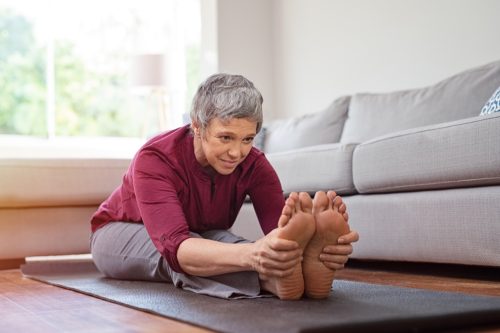
“One of the best ways to save on healthcare costs is to avoid needing major procedures and prescriptions when possible,” says personal finance and debt expert Erika Kullberg. “Eating healthy, exercising regularly, and keeping up with preventative care can help you avoid running into really expensive healthcare needs down the road.”

According to the Center for Health Policy at Georgetown University, nearly 41% of Americans age 51 and older are obese. “Obesity-related conditions include heart disease, stroke, type 2 diabetes and certain types of cancer,” says the CDC. That costs. Annual medical expenses for adults with obesity are $1,861 higher, on average, than those of people with healthy weight.

“Preventive screenings such as mammograms, colonoscopies, and prostate exams are essential for detecting potential health problems early,” says Ricardo Pina, founder of The Modest Wallet. “Many insurance plans cover these types of screenings after a certain age, so be sure to take advantage of them. By keeping abreast of your health, you can catch potential health issues early on when they are often easier and less expensive to treat.” According to the Trust for America’s Health, costs associated with treating preventable chronic diseases are estimated to increase by between $48 billion and $68 billion per year by 2030.

After 55, it’s likely that you’re taking one or more prescription medications—and potentially feeling the financial pinch. “Brand-name drugs can be expensive, so consider switching to generic versions if they are available,” says Pina. “Generic medications contain the same active ingredients as brand-name drugs but are significantly cheaper.”
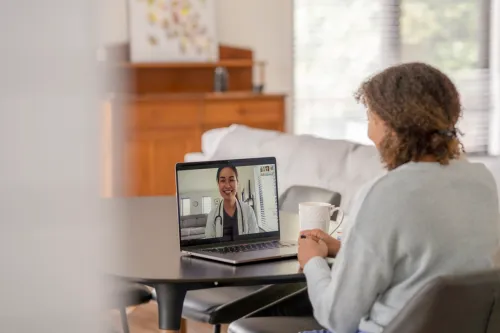
“Often you’ll spend less on a telehealth appointment than you would with an in-person appointment,” says Kullberg. “When you have a minor health issue on your hands, consider going digital. For example, if you have a lingering cold, avoid going to an in-person urgent care location and try a virtual visit. Your appointment may cost less or even be free, depending on your healthcare’s policies.”

“Don’t just go with the first price you get for prescriptions,” says Jeff Rose, a certified financial planner and founder of Good Financial Cents. “Using apps like GoodRx isn’t just smart, it’s a potential game-changer for your wallet. These tools compare prices across pharmacies, sometimes finding options that are significantly cheaper. This can turn into major savings, especially if you’re managing multiple medications.”

Some pharmaceutical companies offer assistance programs to pay for prescriptions. Your doctor may have co-pay cards that reduce or eliminate your out-of-pocket cost, or you might find them on the drugmaker’s website.
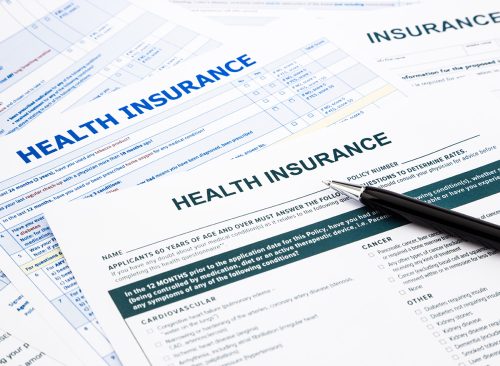
Trying to get by without health insurance can be a pricey gamble. Not only does insurance cover preventative care, it provides financial protection against catastrophic illnesses and injuries that become more likely after age 55. “Major health events like heart attacks, strokes, and cancer treatments can easily cost tens of thousands of dollars or more,” says Rikin Shah, a licensed insurance agent and founder of GetSure. “One study found health insurance reduced out-of-pocket spending on average by over 80% for major medical events for adults over 55.”

If you buy health insurance on the federal or state marketplace, when you’re signing up for a 2024 plan, check to see if you qualify for financial assistance. The Inflation Reduction Act increased the number of people who are eligible. Even if you earned too much to qualify in previous years, you might be eligible for monthly subsidies throughout 2024.

“As you age, your healthcare needs may change, and so should your insurance coverage,” says Pina. “Reviewing your insurance plan annually can help ensure that you have adequate coverage for any new or changing health conditions. You may also find that switching to a different plan can save you money on your monthly premiums.”

“For tests and doctor visits, always verify if they’re essential and covered by your insurance,” advises Andrei Vasilescu, co-founder and CEO of DontPayFull. “It’s like double-checking your gear before a hike.”

Some health insurance plans offer discounts for healthy living. Look into whether you’re getting all the credit you deserve.

Many healthcare providers and pharmacies offer discounts to seniors—you just have to ask for them. “You may also find that some wellness services, such as gym memberships or yoga classes, offer discounted rates for seniors,” says Pina. “These small savings can add up over time.”

Having your prescriptions filled at mail-order pharmacies can net you significant savings over brick-and-mortar locations.

“Usually once or twice a year, communities host health fairs or clinics that provide free or low-cost health screenings, vaccinations, and consultations,” says Kullberg. “See if you can get some of your basic healthcare needs covered at one of these fairs.”

Taking any prescribed medication consistently and as directed can keep medical conditions from escalating into pricey emergencies. “Research shows proper medication adherence could prevent over $100 billion in avoidable hospitalizations each year,” says Shah.

According to Harvard Medical School, more than 70 percent of men older than 55 technically have high blood pressure, defined as a measurement higher than 120/80. Over time, high blood presssure can damage blood vessels, increasing your chances of a heart attack, stroke, erectile dysfunction, kidney problems, and dementia—just to name a few. Get your blood pressure checked every year, and follow your doctor’s advice about improving it if necessary.
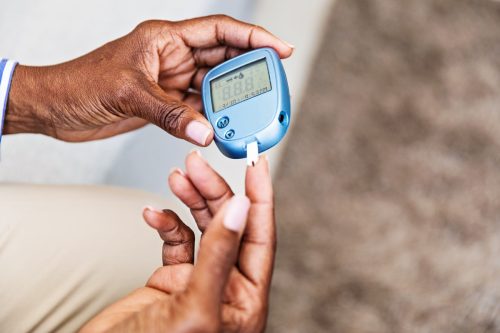
The incidence of Type 2 diabetes is exploding in the United States. Experts predict that one in 10 Americans will have diabetes by the year 2045. Uncontrolled diabetes can lead to an increased risk of heart disease, blindness, poor circulation and even amputation.

Older people are more susceptible to serious illness from viruses and bacteria that only minorly afflict younger people. Make sure you’re up to date on all recommended vaccinations, including flu, COVID-19, RSV, shingles, and pneumococcal pneumonia.

Drinking alcohol to excess raises your risk of heart disease and seven types of cancer, while marijuana use in older people has been associated with an increased risk of injuries and falls. Avoiding recreational drugs and drinking only in moderation can prevent expensive medical consequences.

Tobacco use is another big risk for serious medical problems, including COPD, emphysema, and lung cancer. Quitting can improve your health at any age.

Investing in regular exercise and stress-reduction practices now can save you money on healthcare in the long term.
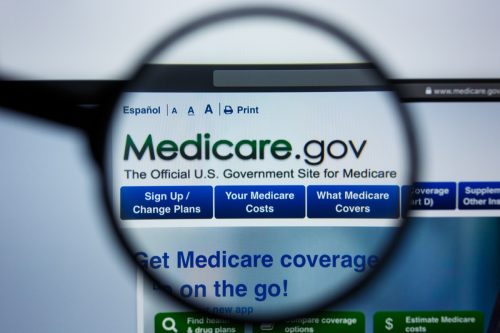
Everyone is eligible for Medicare at age 65. But you can’t sign up at any time thereafter. Your initial enrollment period lasts for seven months, starting three months before you turn 65, and ending three months after the month you turn 65. If you miss this window, you may have to pay an expensive late enrollment penalty for the rest of your life. Check your state’s guidelines and enroll at the right time to avoid penalties and ensure comprehensive coverage.
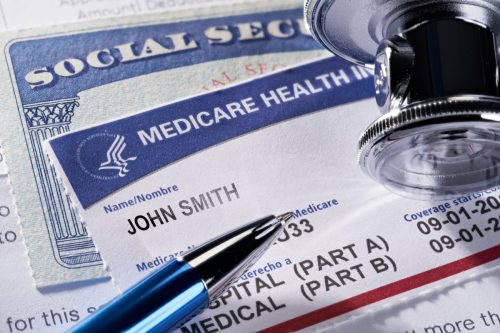
Part A is hospital insurance. It covers inpatient hospital stays, care in a skilled nursing facility, hospice care, and some home health care;
Part B is medical insurance. It covers certain doctors’ services, outpatient care, medical supplies, and preventive services;
Part D offers prescription drug coverage;
Part C, or Medicare Advantage, is an all-in-one alternative to original Medicare offered by private companies approved by Medicare, explains Sherman Standberry, a licensed CPA and managing partner at My CPA Coach.

“When it comes to Medicare, maximizing its benefits is crucial,” says Akshaya Srivatsa, CEO and co-founder of Carebetter. Review what your plan covers carefully and determine if you might benefit from a Medicare supplemental plan (a.k.a. Medigap), which can cover additional expenses not covered by original Medicare.

When you sign up for Medicare, you’re not automatically enrolled in Medicare Part D: prescription drug coverage. That’s a separate step. Overlooking it can really cost you.

Remember that enrolling in Medicare isn’t a set-it-and-forget-it proposition. “It’s crucial to review your Medicare plan annually to ensure it still meets your needs, as plans can change from year to year,” says Standberry.

Health Savings Accounts (HSAs) and Flexible Spending Accounts (FSAs) allow you to set aside pre-tax dollars for medical expenses. This can lower your taxable income, and you can invest that money and use it for qualified medical expenses tax-free. “Using an HSA in retirement is a great way to stretch your income a bit further and keep your tax bills low,” says Ann Martin, director of operations of CreditDonkey. “One of the great things about an HSA as compared to an FSA is that the money doesn’t expire; it just rolls over” to the next year.

Some insurance plans offer seminannual rebates for regular gym attendance. All you have to do is keep track of your sweat sessions, file the paperwork, and you’ll get a check in the mail.

Whether you have private insurance or Medicare, you should comparison-shop your insurance plans at least every few years, advises Stephanie Pogue, founder and CEO of St Louis Insurance Group and a Medicare insurance planner for more than two decades. “Make sure you have the best premium rate or have the benefits you are most likely to use or need,” she says.

“If you choose a Medicare Advantage plan, understand the benefits that are being offered and utilize them,” says Pogue. “You may have allowances to purchase vitamins, pain relievers, and cough medicine through your plan. You may be able to get a personal emergency response system at no cost. Most Medicare insurance plans will pay for gym, community center or YMCA memberships. Many plans offer funds toward groceries, utilities, and transportation to and from doctors at no cost.”

“If you have a Medicare Advantage plan, stay in the network of doctors,” says Pogue. That will save you money. “Even if you have a PPO and have the option to use doctors outside of the network, you will pay less by using a provider who is considered in-network.”

If you have Medicare Part D and are having trouble paying for your prescriptions, you may qualify for Extra Help, a federal subsidy for Medicare recipients with low incomes.

“While Medicare is a great general health insurance package that will offer you lower copays and deductibles than most private plans, one thing it doesn’t actually cover is long-term care like nursing homes or in-home care attendants,” says Martin.”This kind of care can be absolutely essential in your later years—and also completely financially ruinous. Investing in this kind of insurance as soon as you retire is a great way to make your healthcare dollars go further when you really need them.”

When you have a disability insurance policy, “Your income stream won’t be choked if you get injured, fall ill, or can’t go to work,” says finance expert Frank Barber of Learn About Gold. “This can be the difference between preserving your HSA and retirement account and running out of money.”
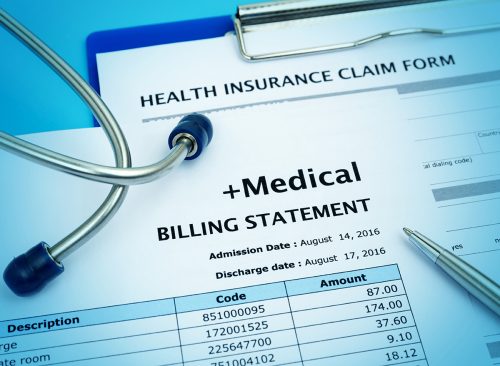
According to Medical Billing Advocates of America, up to 80% of medical bills contain errors. “Scrutinizing itemized bills can reveal errors or overcharges, similar to finding discrepancies in a ledger,” says Vasilescu.

Don’t hesitate to negotiate bills with your providers or insurance companies. “You may be able to get discounts or have some charges waived,” says Vasilescu.

“If you have the budget to fly overseas for something like a knee replacement, you’ll often save a lot of money compared to getting the same procedure stateside, even accounting for the cost of the flight and accommodations,” says Martin. “Most developed countries have low-cost public health care options, so you can have your pick of beautiful destinations in which to recover.”
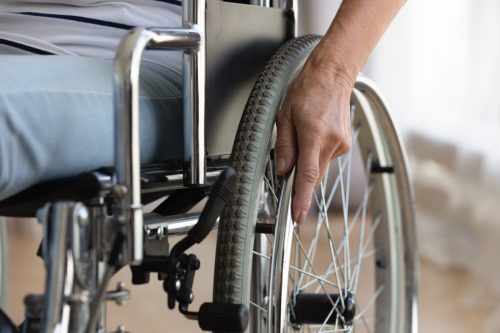
If you need at-home medical equipment, you may be able to save money by purchasing gently used versions on eBay, Facebook Marketplace, or dedicated sites like DotMed or Goodwill Home Medical.
RELATED: 2 Alternatives That Are Just As Beneficial as Walking 10,000 Steps

“If you’re struggling to afford your healthcare costs, explore financial assistance programs offered by your state, healthcare providers, or non-profit organizations,” says Vasilescu. Adds Pogue: “If you find yourself with large medical bills, check with the hospitals to see if they offer any help.”